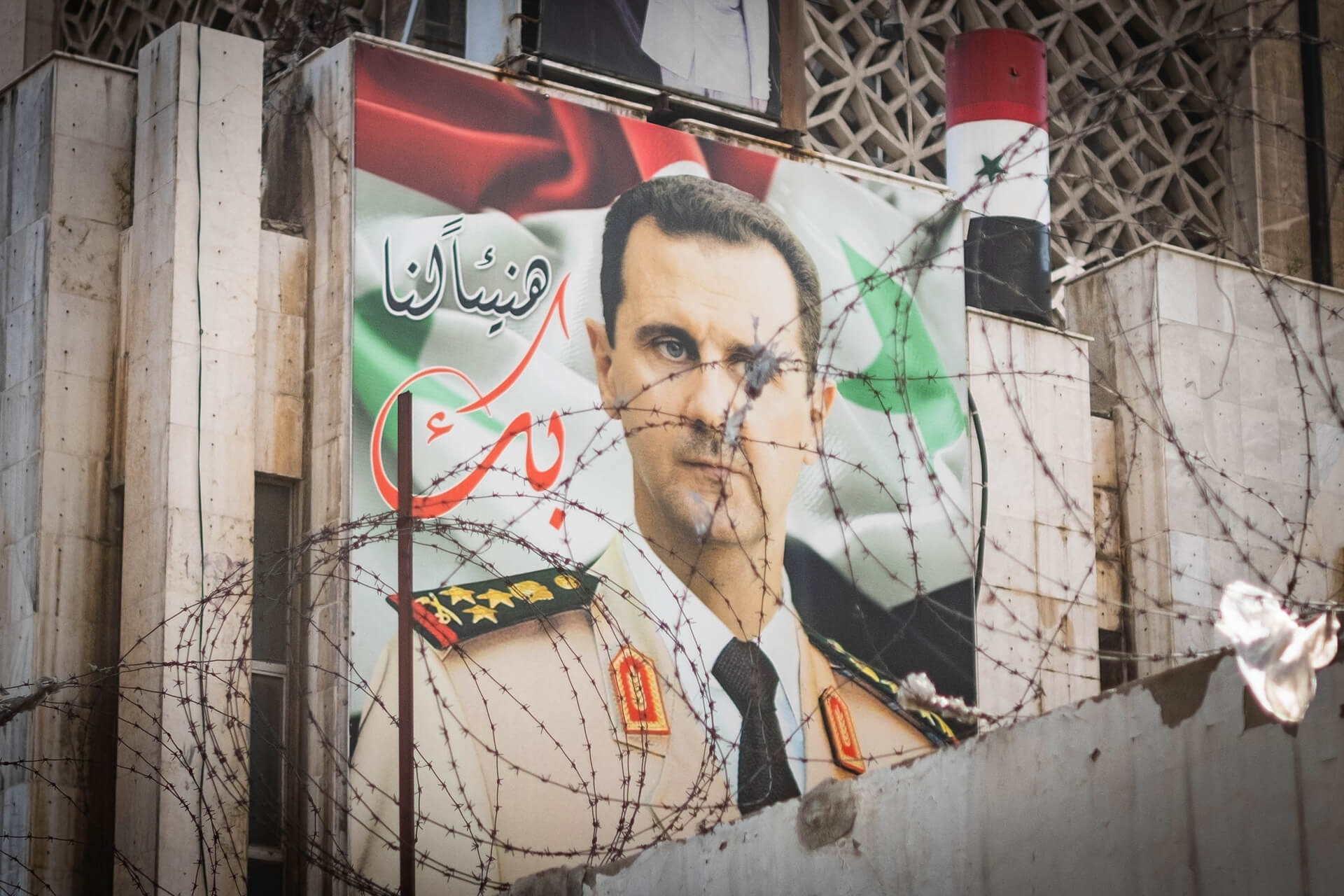Syrian President Bashar al-Assad has had a remarkably smooth journey in his rehabilitation onto the regional and even the world stage. Last month saw him invited to the 2023 United Nations Climate Change Conference and then being warmly embraced by the Arab League in Jeddah under the approving gaze of the crown prince and de facto Saudi leader Mohammed bin Salman. And, as Lina Khatib pointed out in Arab Digest’s podcast on February 17th, the devastating earthquakes of February 6th were what she called “a gift to Assad,” as he was able to force agreement that all humanitarian aid must go through Damascus before reaching the rebel-held enclave of Idlib, which had sustained massive damage.
Accusations which Assad will find difficult to deny
But the road back has just become a little bumpier for the president as on June 12th it was announced that the Dutch and Canadian governments are bringing a case against the Syrian regime to the International Court of Justice (ICJ) in The Hague. The Syrian Arab Republic, the Netherlands and Canada are parties to the Convention Against Torture, which allows state parties to refer cases of non-compliance to the International Court of Justice, should negotiations and arbitration fail.
A statement from the ICJ noted:
In their Application, Canada and the Netherlands contend that “Syria has committed countless violations of international law, beginning at least in 2011, with its violent repression of civilian demonstrations, and continuing as the situation in Syria devolved into a protracted armed conflict”. According to the Applicants, “[t]hese violations include the use of torture and other cruel, inhuman or degrading treatment or punishment . . ., including through abhorrent treatment of detainees, inhumane conditions in places of detention, enforced disappearances, the use of sexual and gender-based violence, and violence against children.”
It added:
Together with the Application, Canada and the Netherlands filed a Request for the indication of provisional measures, pursuant to Article 41 of the Statute of the Court and Articles 73, 74 and 75 of the Rules of Court, “to preserve and protect the rights owed to them under the Convention against Torture, which Syria continues to violate, and protect the lives and physical and mental integrity of individuals within Syria who are currently, or are at risk of, being subjected to torture and other cruel, inhuman or degrading treatment or punishment.”
The London law firm Guernica 37 is assisting the Dutch government on the application. Guernica37’s Toby Cadman, a specialist in international humanitarian law, told Arab Digest that, though ICJ cases can take several years, “this is a critically important first step; the process has started.” The ICJ functions as a court of arbitration, aiming to settle disputes between nations in accordance with international law, and it gives advisory opinions on international legal matters. Despite the slow pace of the court, Cadman says he is “looking for progress in the next couple of months” regarding provisional measures, as “urgent intervention is needed.”
Evidence of the industrial scale of torture has been secured through a variety of sources, including the UN’s International Independent Commission of Inquiry on the Syrian Arab Republic, its International, Impartial and Independent Mechanism (IIIM) established following a UNGA resolution in 2016, and testimony from survivors of torture.
Collectively, they paint a grim picture of a brutal prison system, which human rights organizations have determined continues to hold nearly 140,000 political prisoners. Since the beginning of the war in 2011 more than 30,000 have either been murdered or have died as a result of torture and poor medical treatment in Assad’s jails.
This is not the time to send refugees back
Despite those appalling numbers, pressure is growing in regional host countries, Turkey, Lebanon and Jordan, as well as some European states to forcibly repatriate Syrians who have fled the fighting on the specious grounds that as the war winds down refugees will be safe once they return. This is not a view shared by the refugees, as Kelly Petillo noted in a recent article:
The Eighth Regional Survey on Syrian Refugees’ Perceptions and Intentions on Return to Syria, recently published by UNHCR [United Nations High Commissioner for Refugees], confirms yet again—and in fact reinforces previous trends in this direction—that the majority of Syrians do not want to return home, whether in the next year (93.5 percent) or the next five years (51.3 percent.) What’s more, the number of Syrians wishing to go back one day is progressively decreasing each year, from 76 percent in 2018 to 43.5 percent in 2023.
The fear of return has everything to do with Assad’s gross violations of the Convention on Torture and, as Petillo noted in Arab Digest’s April 19th podcast, “we know there have been cases of arrests, detentions, and forced disappearances” of returnees in a regime that tends to consider most of the refugees who have fled the country dissidents, regardless of their political affiliation. Added to that is the danger of forced conscription into the military for returning males.
The plight of the refugees garnered scant attention at the Arab League meeting despite the concerns of Kuwait, Morocco and Qatar, with the delegation of the last mentioned, led by the Emir, walking out before Assad spoke.
Asked if he thought that Assad and his regime could simply ignore the ICJ, Cadman said “It is the highest level UN court. I don’t think they will be able to walk away. They will have to engage.”
[Arab Digest first published this piece.]
[Anton Schauble edited this piece.]
The views expressed in this article are the author’s own and do not necessarily reflect Fair Observer’s editorial policy.
Support Fair Observer
We rely on your support for our independence, diversity and quality.
For more than 10 years, Fair Observer has been free, fair and independent. No billionaire owns us, no advertisers control us. We are a reader-supported nonprofit. Unlike many other publications, we keep our content free for readers regardless of where they live or whether they can afford to pay. We have no paywalls and no ads.
In the post-truth era of fake news, echo chambers and filter bubbles, we publish a plurality of perspectives from around the world. Anyone can publish with us, but everyone goes through a rigorous editorial process. So, you get fact-checked, well-reasoned content instead of noise.
We publish 2,500+ voices from 90+ countries. We also conduct education and training programs
on subjects ranging from digital media and journalism to writing and critical thinking. This
doesn’t come cheap. Servers, editors, trainers and web developers cost
money.
Please consider supporting us on a regular basis as a recurring donor or a
sustaining member.
Will you support FO’s journalism?
We rely on your support for our independence, diversity and quality.







Comment